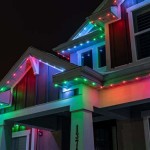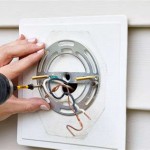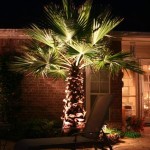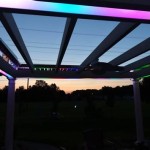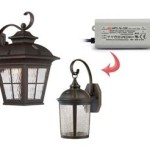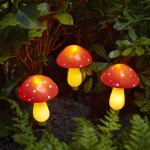Lighting Guide for the Outdoor Environment
Illuminating outdoor spaces not only enhances their aesthetic appeal but also provides safety and functionality. By carefully considering the following essential aspects, you can create a well-lit and inviting outdoor environment.
1. Purpose and Ambiance
Determine the primary purpose of the outdoor area. Is it a gathering spot, a dining space, or a relaxation zone? The type of lighting you choose should complement the intended use and create the desired ambiance. For example, dim and warm lighting fosters a cozy atmosphere for intimate gatherings, while brighter and more functional lighting is suitable for cooking or reading.
2. Light Sources and Fixtures
Select outdoor lighting fixtures that are durable, weather-resistant, and energy-efficient. LED lights are a popular choice due to their longevity and low energy consumption. They come in various styles and colors to suit different aesthetic preferences.
3. Brightness and Color Temperature
Consider the brightness and color temperature of the lighting. Measured in lumens, brightness affects how well an area is illuminated. Color temperature, measured in Kelvins (K), influences the warmth or coolness of the light. Warm lighting (2700K-3000K) creates a cozy and inviting atmosphere, while cooler lighting (4000K-5000K) provides better visibility.
4. Layers of Lighting
Use a combination of different lighting layers to create depth and interest. Ambient lighting provides overall illumination, while task lighting focuses on specific areas for activities like cooking or reading. Accent lighting highlights architectural features or landscape elements.
5. Shadows and Silhouettes
Shadows can add depth and drama to an outdoor space. Position lighting fixtures to create intriguing shadows and silhouettes of trees, plants, or sculptures. However, avoid creating excessive darkness that could impede safety or visibility.
6. Uplighting and Downlighting
Uplighting illuminates objects from below, creating a dramatic effect. It can be used to highlight trees, walls, or sculptures. Downlighting, on the other hand, provides functional illumination from above. It is suitable for pathways, patios, or work areas.
7. Automation and Controls
Consider using smart lighting systems to automate lighting schedules, adjust brightness, and control different lighting zones. This enhances convenience and energy efficiency.
8. Maintenance and Safety
Regular maintenance is crucial to ensure optimal lighting performance and safety. Clean fixtures regularly, replace damaged bulbs, and check for any electrical hazards. Follow proper installation and safety guidelines to prevent accidents.
9. Environmental Impact
Choose lighting fixtures that minimize light pollution and energy consumption. Opt for shielded fixtures that direct light downwards to reduce glare and light trespass. Use energy-efficient LED bulbs to reduce your environmental footprint.
10. Professional Design Assistance
If you require a comprehensive and customized lighting plan, consider consulting with a professional lighting designer. They can provide expert advice, ensure optimal lighting performance, and create a stunning outdoor environment.

Cibse Lighting Guide Lg6 1992 The Outdoor Environment Unknown Author 9780900953538 Abebooks

Cibse Lighting Guide Lg6 1992 Quot The Outdoor

Environmental Considerations For Outdoor Lighting The Ies Web

Avoid Light Pollution Guide To Preventing Obtrusive

A Guide To Dark Sky Outdoor Lighting 6 Quick Tips Ideas Advice Lamps Plus

Choose The Best Color Temperature For Your Outdoor Lighting Knowledge Base Super Bright Leds

Reduce Light Pollution With Better Outdoor Lighting 5 Principles

Outdoor Lighting Guide Delmarfans Com

Lighting Airport Outdoor Environments The Ies Web

Outdoor Lighting Guide Delmarfans Com
Related Posts
